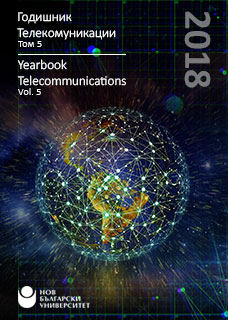Getting immersed in the 21st century #digital #fluidity with BA minor programs across disciplines
Getting immersed in the 21st century #digital #fluidity with BA minor programs across disciplines
Author(s): Ludmil DuridanovSubject(s): Social Sciences, Education, Fine Arts / Performing Arts, Visual Arts, Higher Education
Published by: Нов български университет
Keywords: Digital Humanities; Digital Natives; Global Psychology; Global Communications; Grown-up digital; Millennials; Mobile Technologies; Social Networking; Social Technologies
Summary/Abstract: The objective of the following article is to consider the methodological option for developing a multidisciplinary approach concerned with already established intuitive behavior of using mobile technologies. Aligning methodologically to 21st century real life, digital fluidity is our compass-on-the-go by approaching life cycle didactics. The FIRST LIFE CYCLE has been focused on introducing the new ‘immersive methodology’. This has been conveyed by the design and the start of a step-by-step procedure in two interdisciplinary BA Minor programs at NBU (Digital Humanities and Service Delivery Engineering). They both are focused on the dynamic intersection of technological and psychological multi-skills. The SECOND LIFE CYCLE is to expand methodologically and reach the mental dynamics of a Creative Lab. The THIRD LIFE CYCLE is to further the established infrastructure of “light project-based activities” between WSU and NBU students to the level of IMMERSIVE GAME TECHNOLOGY guided by their variously oriented lecturers where grown-up-digitally students and digitally migrated research fellows experience innovative cutting edge technologies and gain relevant philosophical insights. In this ‘interdisciplinary infrastructure’ an inherent place is provided to lecturers-representatives of global market players. Finally, all these lead to the natural acquisition of fine-tuned skills, while working in a team with different specialists, and being guided by experienced lecturers from NBU, TU Sofia, Western Sydney University and multinational companies like IBM, HPE / Micro Focus, Unify / Atos, Bosch Software Innovations. An additional methodological acquisition is the way students develop useful “social technologies” wherein emotional sensitivity and intuitive use are of particular importance. Thus both programs master a permanently aligning blended educational approach, combining traditional learning capstones with social networking models tailored for the growing target group of grown-up-digitally students. As a result, hybrid Minors at NBU become the “best practice” of testing a realistically developed educational model where outcomes and curriculum changes can always take place, being updated and upgraded whenever necessary.
Journal: Годишник Телекомуникации
- Issue Year: 2018
- Issue No: 5
- Page Range: 125-133
- Page Count: 9
- Language: English

